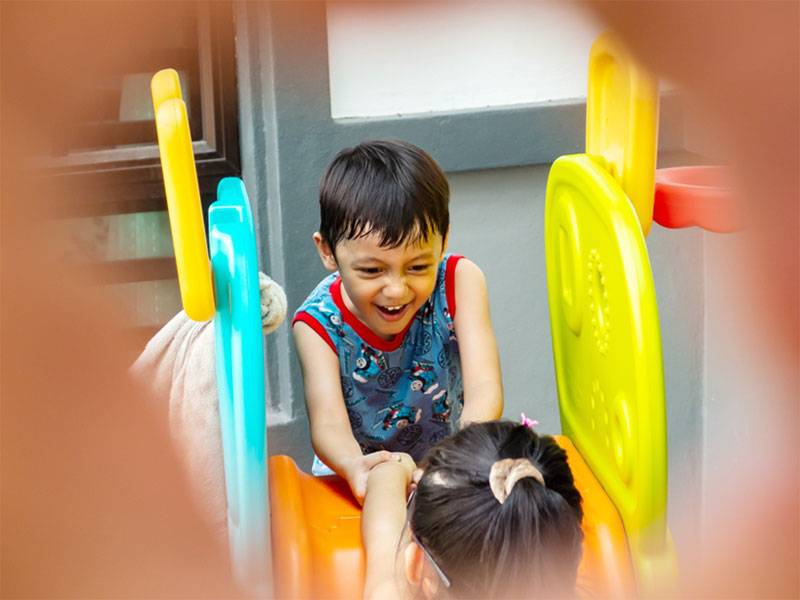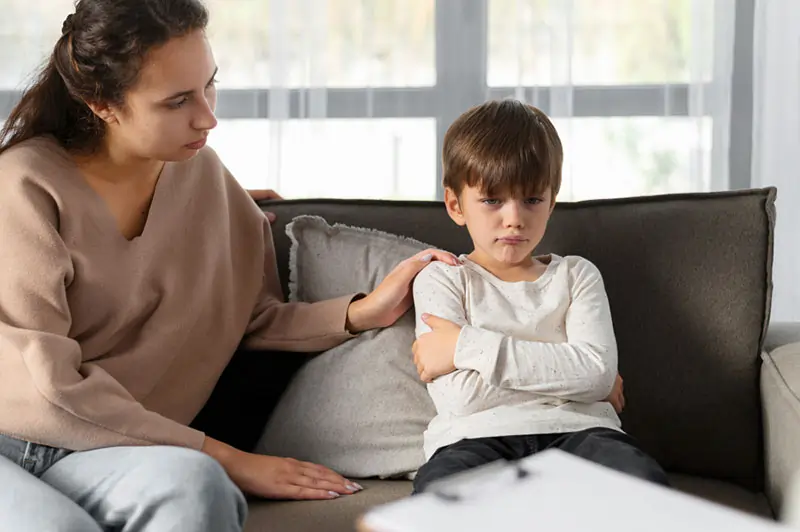5 Core Social-Emotional Learning Skills Preschoolers Need
When a preschooler learns how to calm down after a tantrum or comfort a friend who is upset, they are learning skills that will help them in life. These important skills are called SEL (Social-Emotional Learning) skills. They help kids learn about themselves, control their feelings, make smart choices, and build healthy relationships.
What is Social & Emotional Learning?
Social-emotional learning teaches kids how to understand their feelings, control how they feel, make friends with people around them, and make smart decisions. This means knowing how to say how you feel in a healthy way, like when you’re happy, sad, or angry.
When preschoolers develop social-emotional skills, they start to notice how their actions affect others, grow empathy, and become more confident in handling everyday situations. With the help of this, they build a strong foundation for their future social interactions and academic success.
5 Core SEL Skills Preschoolers Need to Develop
The five core competencies of SEL skills form the heart of every child’s social and emotional development. These skills include knowing yourself, managing yourself, making decisions, being aware of others, and building relationships. You can help each of these grow by doing fun, interesting, and age-appropriate social-emotional learning activities.
1. Self-Awareness
Self-awareness is an important SEL skill that helps kids learn how to understand their feelings, thoughts, and values. Preschoolers who are self-aware can start to connect their feelings of happiness, anger, or sadness to specific events. This includes teaching them how to name their feelings and talk about how they feel, which helps them deal with their anger, communicate better, and feel more confident.
Activities for Self-Awareness:
- “Feelings mirror”: Kids make different faces and other kids guess what they’re feeling.
- Drawing emotions: Getting kids to use shapes and colors to show how they feel.
- Daily check-ins: Kids can use a “feelings chart” to help them name their feelings.
- Story time: Reading picture books with characters who show different feelings, then talking about them.
- Music and movement: Playing different songs and asking kids how they feel about the music.
2. Self-Management
This social-emotional learning skill teaches kids how to handle their feelings, adjust to new situations, and reach their goals. Preschoolers often have trouble controlling their impulses, which can show up as tantrums or restlessness.
Teaching them ways to calm down, focus, and try again after a setback helps them become more resilient and patient, which are two traits that will help them in school and in life.
Strategies for Self-Management:
- Breathing games: Teaching kids to take “flower breaths,” which means to breathe in like they’re smelling a flower and out like they’re blowing out a candle.
- Storytelling: Telling stories in which characters deal with anger or frustration.
- Visual timers: They help kids move smoothly from one activity to the next.
- Calm corners: Making a comfortable place for kids to sit, relax, and reset when they are feeling too much.
- Easy yoga poses: Fun poses like “tree” or “butterfly” that help you let go of energy and stay focused.
3. Responsible Decision-Making
This skill helps kids make choices that are safe, kind, and fair. Making decisions when you’re young means taking small steps, like picking a toy, deciding who to play with, or learning from your mistakes. When kids get to practice making decisions in safe places, they start to learn about consequences and how to be responsible for what they do.
Promoting Responsible Decision-Making:
- Role-play situations: “What would you do if…?” games to help you get better at solving problems.
- Sorting activities: Helping kids decide between safe and unsafe actions.
- Games that require cooperation, like teaching fairness, teamwork, and responsibility.
- Choice boards let kids choose between two or three things, like a snack, an activity, or a book.
- Taking care of the garden: letting kids help decide when to water plants or take care of class pets.
4. Social Awareness
Being socially aware means being able to understand how others feel, value differences, and show respect. This basic SEL skill can help preschoolers learn that other people may feel differently and that being kind is important. This early encouragement of empathy helps kids respect differences, celebrate cultural traditions, and be kind in social situations.
Building Social Awareness:
- Circle time: Telling stories about different cultures, holidays, and customs.
- Puppet play: acting out situations that show how to be kind and include others.
- Helping hands chart: Giving rewards for kind acts like sharing or helping a friend.
- Community walks: Taking kids around the school or neighborhood to see helpers like security guards or cleaners and talk about what they do.
- Games that make you feel bad, like asking, “How would you feel if your toy broke?” to get people to see things from other people’s points of view.
5. Relationship Skills
Kids do better emotionally and socially when they have strong relationships. This skill includes making friends, talking to people clearly, and settling disagreements. Preschoolers who learn to work together, listen, and share build trust and a sense of belonging, which makes them feel more comfortable in groups.
Enhancing Relationship Skills:
- Partner activities: Putting kids in pairs to work on puzzles or art projects together.
- Listening games are activities that help kids practice paying attention.
- Conflict resolution corner: a quiet place where kids can talk and work out their differences.
- Group projects: To get people to work together, they can build something together, like a block tower.
Conclusion: Key Takeaways
Academics are important, but what really makes a child happy and successful are the SEL skills that help them think, feel, and talk to other people. You can help kids become confident, caring, and responsible adults by teaching them the five skills of self-awareness, self-management, responsible decision-making, social awareness, and relationship skills.
The best part is You can learn these skills by doing everyday things, telling stories, and doing fun social-emotional learning activities.


